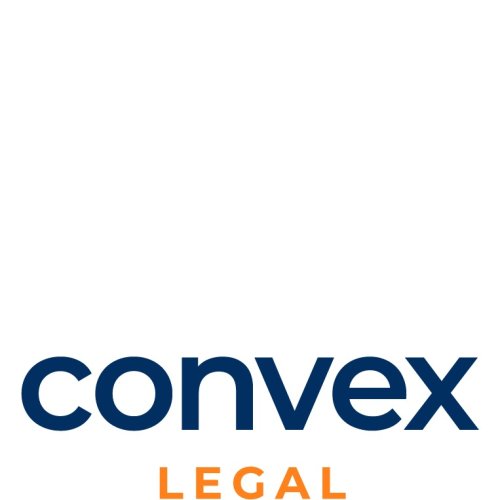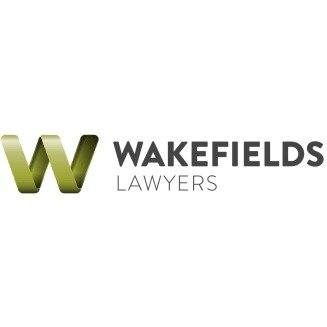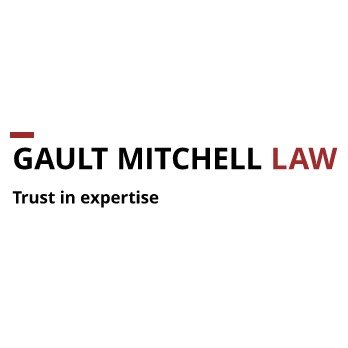Best Tax Increment Financing Lawyers in Wellington
Share your needs with us, get contacted by law firms.
Free. Takes 2 min.
List of the best lawyers in Wellington, New Zealand
About Tax Increment Financing Law in Wellington, New Zealand
Tax Increment Financing (TIF) is a public financing method used for subsidizing infrastructure and other community-improvement projects in Wellington, New Zealand. It involves channeling future increases in tax revenues generated from the uplifted value of improved properties in a defined area. TIF is designed to support public projects or stimulate private development projects that may not be feasible without financial incentives. In Wellington, TIF has been employed as a tool to drive urban regeneration and infrastructure development while minimizing upfront public sector costs.
Why You May Need a Lawyer
While TIF is a powerful financial tool, it comes with complex regulations and legal intricacies. Here are common situations where the expertise of a lawyer might be essential:
- Navigating regulatory compliance for proposed projects to qualify for TIF benefits.
- Structuring TIF agreements between public bodies and private developers.
- Resolving disputes related to property assessments and the calculation of tax increments.
- Ensuring that uses of tax increments comply with local development plans.
- Understanding impacts on existing property taxes and community dynamics.
- Advising on negotiations with local councils and other stakeholders.
Local Laws Overview
In Wellington, several key aspects of local laws govern the use and administration of Tax Increment Financing:
- Local Government Act 2002: Provides the overarching legal framework for local government operations, including TIF initiatives.
- Resource Management Act 1991: Guides land use and consent requirements, which are vital when planning TIF-related projects.
- City Development Strategies: Specific frameworks developed by Wellington City Council to align TIF projects with urban planning goals.
- Public Consultation Requirements: Legal mandates ensure that affected communities have a voice in TIF project planning and implementation.
Frequently Asked Questions
What is the primary purpose of TIF in Wellington?
The primary purpose of TIF in Wellington is to finance infrastructure improvements to spur economic development and urban regeneration without burdening taxpayers with upfront costs.
How does TIF work on a financial level?
TIF captures the future tax revenue increases attributable to property value increases in a designated area and uses that future income to finance current infrastructure projects.
Who can initiate a TIF district in Wellington?
TIF districts are typically initiated by local councils or public development authorities working in collaboration with private developers.
Are there any risks associated with TIF?
Yes, there's a risk that projected tax increments may not materialize, leaving financial gaps. Additionally, TIF can impact service delivery if not properly managed.
Can TIF funds be used for any kind of project?
No, TIF funds are generally earmarked for public infrastructure projects that promote further private investment and development in a designated area.
How long does a TIF district typically last in Wellington?
A TIF district generally lasts between 20 to 25 years, but the duration can vary depending on the scope and scale of the project.
Do TIF-funded projects require public approval?
Yes, TIF projects undergo public consultation processes to ensure community needs and perspectives are considered.
How does TIF impact existing residents and businesses?
TIF can potentially increase property values and taxes, which may impact affordability for existing residents and businesses. However, it can also lead to improved services and infrastructure.
What role do developers play in TIF projects?
Developers work in partnership with the council to implement TIF-approved projects, contributing expertise and resources to achieve project goals.
Is legal advice necessary for participating in a TIF project?
Yes, legal advice is crucial to understanding the legal implications, structuring agreements, and ensuring compliance with TIF legislation and requirements.
Additional Resources
Here are some recommended resources and organizations that provide additional information and assistance related to TIF in Wellington:
- Wellington City Council: Provides guidelines, strategies, and contact information for inquiries related to TIF districts.
- The Ministry of Business, Innovation & Employment: Offers insights into economic development programs and resources.
- New Zealand Law Society: Provides directories and resources for finding qualified legal professionals in the area of public finance.
- Chamber of Commerce: Offers networking and advocacy resources that could be beneficial for businesses involved in TIF projects.
Next Steps
If you require legal assistance with Tax Increment Financing in Wellington, here are some steps you can take:
- Identify specific legal needs related to your project or inquiry.
- Research and engage a qualified lawyer who specializes in public finance and development law.
- Contact Wellington City Council to seek preliminary advice and confirm procedural requirements.
- Consider engaging in community consultations if your project may impact local residents or businesses.
- Prepare a detailed outline of your development proposal to streamline discussions with legal advisors and governmental bodies.
Lawzana helps you find the best lawyers and law firms in Wellington through a curated and pre-screened list of qualified legal professionals. Our platform offers rankings and detailed profiles of attorneys and law firms, allowing you to compare based on practice areas, including Tax Increment Financing, experience, and client feedback.
Each profile includes a description of the firm's areas of practice, client reviews, team members and partners, year of establishment, spoken languages, office locations, contact information, social media presence, and any published articles or resources. Most firms on our platform speak English and are experienced in both local and international legal matters.
Get a quote from top-rated law firms in Wellington, New Zealand — quickly, securely, and without unnecessary hassle.
Disclaimer:
The information provided on this page is for general informational purposes only and does not constitute legal advice. While we strive to ensure the accuracy and relevance of the content, legal information may change over time, and interpretations of the law can vary. You should always consult with a qualified legal professional for advice specific to your situation.
We disclaim all liability for actions taken or not taken based on the content of this page. If you believe any information is incorrect or outdated, please contact us, and we will review and update it where appropriate.

















